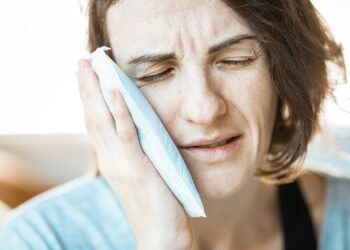Exploring the Healing Powers of Cannabis: How Marijuana is Revolutionizing Mental Health Treatment
Over the past few decades, there has been a growing interest in the potential therapeutic benefits of cannabis for mental health conditions. With more states legalizing marijuana for medical and recreational use, researchers are beginning to explore how this plant can be used to treat a variety of mental health disorders, including anxiety, depression, PTSD, and more. In this article, we will delve into the healing powers of cannabis and how it is revolutionizing mental health treatment.
The Endocannabinoid System and Mental Health
Before we dive into the specifics of how cannabis can help with mental health conditions, it’s important to understand the role of the endocannabinoid system in the body. This system is responsible for regulating a variety of physiological processes, including mood, memory, appetite, and stress response. The endocannabinoid system consists of cannabinoid receptors (CB1 and CB2) located throughout the body, as well as endocannabinoids – natural compounds produced by the body that bind to these receptors.
When the endocannabinoid system is not functioning properly, it can lead to imbalances in mood, cognition, and behavior – all of which are common symptoms of mental health disorders. This is where cannabis comes into play. Cannabis contains phytocannabinoids, which are similar in structure to endocannabinoids and can interact with the body’s cannabinoid receptors to help restore balance and alleviate symptoms of mental health conditions.
Cannabis and Anxiety
Anxiety disorders are among the most common mental health conditions, affecting millions of people worldwide. Symptoms of anxiety can range from mild to severe and can significantly impact a person’s quality of life. Many individuals with anxiety have turned to cannabis as a natural remedy for their symptoms, and research suggests that it may be effective in reducing anxiety levels.
One study published in the Journal of Affective Disorders found that cannabis use was associated with a decrease in anxiety symptoms in patients with PTSD. Another study published in the Journal of Clinical Pharmacy and Therapeutics found that CBD – a non-psychoactive compound found in cannabis – was effective in reducing anxiety levels in patients with social anxiety disorder.
Cannabis and Depression
Depression is another common mental health condition that can have a profound impact on a person’s well-being. While traditional antidepressant medications are often prescribed to treat depression, many individuals are turning to cannabis as an alternative or complementary therapy. Research has shown that cannabis may be effective in alleviating symptoms of depression by boosting serotonin levels in the brain.
A study published in the Journal of Affective Disorders found that cannabis use was associated with a significant decrease in depression symptoms in patients with bipolar disorder. Another study published in the Journal of Affective Disorders found that CBD was effective in reducing depressive symptoms in patients with major depressive disorder.
Cannabis and PTSD
Post-traumatic stress disorder (PTSD) is a debilitating mental health condition that can develop after experiencing a traumatic event. Symptoms of PTSD can include flashbacks, nightmares, hypervigilance, and emotional numbness. Many individuals with PTSD have found relief from their symptoms through the use of cannabis.
Research has shown that cannabis can help alleviate symptoms of PTSD by reducing the intensity and frequency of flashbacks and nightmares. A study published in the Journal of Psychopharmacology found that patients with PTSD who used cannabis experienced a significant reduction in PTSD symptoms compared to those who did not use cannabis.
Common Questions About Cannabis and Mental Health
Is cannabis safe for mental health conditions?
While cannabis may be effective in treating symptoms of mental health conditions, it is important to use it responsibly and under the guidance of a healthcare provider. Some individuals may experience negative side effects from cannabis use, such as increased anxiety or paranoia. It is also important to consider the potential for dependence or addiction with regular cannabis use.
What is the best way to consume cannabis for mental health benefits?
There are a variety of ways to consume cannabis, including smoking, vaping, edibles, and tinctures. The best method of consumption for mental health benefits may vary depending on the individual and their specific symptoms. It is recommended to start with a low dose and gradually increase as needed to find the optimal dose for symptom relief.
Is CBD or THC more effective for mental health conditions?
Both CBD and THC have been shown to have therapeutic benefits for mental health conditions, but they work in different ways. CBD is non-psychoactive and may be more suitable for individuals who are sensitive to the psychoactive effects of THC. THC, on the other hand, may be more effective for certain symptoms, such as pain relief or insomnia.
Conclusion
Cannabis has the potential to revolutionize mental health treatment by offering a natural and effective alternative to traditional medications. Research has shown that cannabis can help alleviate symptoms of anxiety, depression, PTSD, and other mental health conditions by interacting with the body’s endocannabinoid system. While cannabis is not a cure-all, it can be a valuable tool in the treatment of mental health disorders when used responsibly and under the guidance of a healthcare provider.
As more research is conducted on the therapeutic benefits of cannabis, we can expect to see even more innovative treatments and therapies emerge that harness the healing powers of this remarkable plant. By exploring the potential of cannabis for mental health treatment, we can pave the way for a brighter and more hopeful future for individuals struggling with mental health conditions.
Remember, always consult with a healthcare provider before incorporating cannabis into your treatment plan, and be sure to educate yourself on the laws and regulations surrounding cannabis use in your area.




















![The Mind-Blowing Effects of [Cannabis Strain]](https://cannabisdailyguide.com/wp-content/uploads/2025/10/tree-4138799_960_720-360x180.jpg)


















































